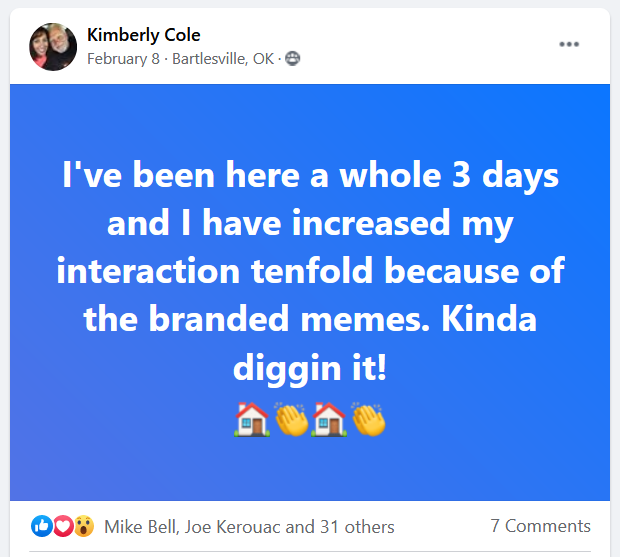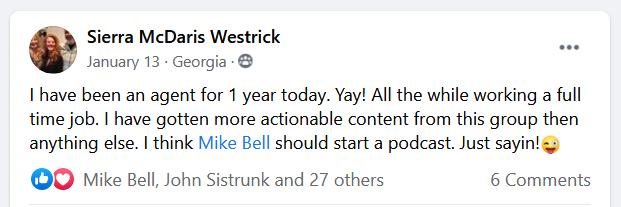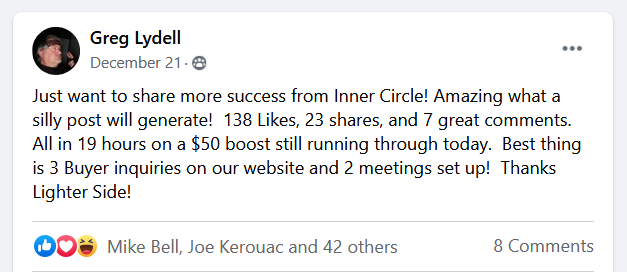
8 Tools Every Agent Should Know About To Dominate Social Media
In high school, your math teacher may have said something along the lines of, “You won’t have a calculator with you all the time.” Fast



With Hurricane Helene causing so much damage to an area many couldn’t imagine a hurricane would impact, and then Hurricane Milton predicted to be the worst storm to hit Florida in 100 years, homeowners insurance is on the minds of many people.
Unfortunately, according to this recent realtor.com article, many homeowners believe they’re covered for certain types of damage, when they actually aren’t, such as:
So if you haven’t reviewed your homeowners insurance policy in the past year, you may want to do so, even if you’re nowhere near either of these hurricanes.
But when you do, you might want to avoid using artificial intelligence (AI) for help analyzing your coverage…
A recent poll found that dealing with insurance has become such a dreaded task that 58% of Americans would rather face a slew of life’s most annoying situations—like sitting in endless traffic, moving back in with their parents, or listening to one song on repeat for an entire year—if it meant avoiding insurance paperwork.
From confusing coverage terms to endless fine print filled with legalese and exclusions, trying to understand insurance policies is not easy for the average homeowner. Which may be why 36% of respondents claimed to have used AI to get a handle on their insurance coverage. It seems like a quick, easy way to get concise answers to a complex matter.
However, another recent study showed that AI’s capabilities may not be as advanced as some think, especially in contexts that require deep understanding and contextual knowledge. The study tested AI models on a university criminal law exam, a setting that mirrors the complexity and critical analysis needed for understanding intricate insurance policies, and the results weren’t so promising.
While AI managed to score decently on simple essay-style questions, it fell flat when required to provide in-depth legal analysis or address more complex problems. In fact, AI’s average performance was so poor that it only outperformed 4.3% of human students, with most responses barely getting a passing grade. When the AI received more structured prompts and guidance from a human, its performance improved slightly but was still inconsistent, ranging from 50% to 78%.
AI can be useful for quick comparisons or generating basic insights, but the nuances of home insurance—especially in areas affected by hurricanes and natural disasters—are probably better off being handled by a human who knows the industry.
Just as AI stumbled on a law test due to a lack of experience or context, it could easily give you false information that would be difficult for you to realize was incorrect. Coverage often involves specific clauses, exclusions, and even state-specific regulations that an AI might not interpret correctly. Missing a single detail can make the difference between having your claim approved or denied after a storm.
For instance, many policies exclude flood damage unless the homeowner has a separate flood insurance plan. Other policies might have special deductibles for hurricane-related claims that are separate from standard deductibles. AI might pick up on these nuances if prompted correctly, but if you’re relying on a chatbot or virtual assistant to give you all the answers, you might be left high and dry.
You need to know exactly what to ask in order to get the most accurate answer, and even then it might not be entirely accurate. Even when AI tools seem to simplify complex coverage terms, they may not be factoring in local laws, building codes, or even the potential for price hikes in high-risk areas.
However, an experienced insurance agent has a lot more experience and insight, and can help identify these gaps and offer personalized advice tailored to a homeowner’s unique situation. They can also help you get the most appropriate coverage at the best price.
While it may be tempting to encourage an insurance professional to guide you toward the lowest cost coverage, spending extra money may be a small price to pay when you’re faced with an actual event that causes damage.
And if you are impacted by a storm, a professional insurance agent can help you navigate the process, and advocate for you if the insurance carrier is giving you any trouble.
This doesn’t mean you shouldn’t use AI at all, but you should use it as a tool to gather preliminary information before sitting down with a professional who can help you make a more informed decision.
The Takeaway:
While AI can be a helpful tool, there’s no substitute for human expertise. AI might be able to help you compare policies or understand basic terms, but when it comes to the critical details of home insurance, don’t leave things to chance.
When a natural disaster hits, and you’re faced with damage to your property, the last thing you want is to realize that your insurance policy wasn’t what you thought it was. Having a knowledgeable insurance professional in your corner can save you from the frustration, financial loss, and heartache of denied claims or insufficient coverage. Experienced agents can provide a detailed breakdown of what’s covered, explain the fine print, and suggest additional policies if needed.

(Shh, our secret)
Show your sphere your an expert. We have over 2100 articles covering every real estate topic your audience will love.
Position yourself as a real estate authority!
Real estate + topical events — the perfect match!
Become the bearer of good vibes!
Because hey, everyone loves to laugh!



Get our weekly email that makes communicating with your sphere on social actually enjoyable. Stay informed and entertained, for free.

In high school, your math teacher may have said something along the lines of, “You won’t have a calculator with you all the time.” Fast

Social media is a blessing and a curse for real estate agents. It has made it so much easier (and less costly) to stay in

(How to Become the Go-to Source for Local Reporters When They Need a Real Estate Expert) When you see someone quoted or interviewed by a

In the world of real estate, first impressions don’t happen at the front door—they happen on a screen. Before buyers ever set foot on the

Social media made marketing yourself as an agent about as cheap and easy as it comes. Years ago, you had to have a good chunk
Depending on your situation, it may not take the full 30 minutes.

This reset password link has expired. Check the latest email sent to you.















